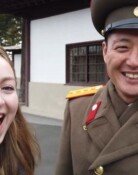Mister Xi Jinping and Mister Ma Ying-jeou
Mister Xi Jinping and Mister Ma Ying-jeou
Posted November. 09, 2015 09:56,
Chinese President Xi Jinping and Taiwanese President Ma Ying-jeou called each other "seonsaeng (teacher or mister)" at their first summit meeting on Saturday. This way of naming was a measure taken inevitably by the two leaders who do not recognize the other as a country, while claiming the legitimacy of their own governments. In China, seonsaeng is a general honorific title that is similar to "mister" in English, or "ssi" (mister) in Korea. Seonsaeng is sometimes used to refer to a teacher or person with professional knowledge, or simply refer to an adult in Korea.
During the Joseon Dynasty, seonsaeng was a title that was only given to an intellectual person with moral influence. There was a saying that three yeonguijeong (prime ministers) are equal to one daejehak (chief knowledge officer), and three daejehak are equal to one teacher and three teachers are equal to one cheosa (learned nobleman without official title). In the Joseon era, yeonguijeong was the highest government post, and daejehak was chief scholar, but since daejehak was the supreme authority in knowledge, and honorable post who served throughout lifetime, and was thus admired by people. Seonsaeng was more respected than such the noble post of daejehak, and cheosa was someone living in isolation without taking a government post throughout his life despite being highly intellectual, which illustrates values of classical scholars in Korea.
How to entitle the other party plays an important role in defining political relations. Three years ago, Lee Jong-geol, floor leader of the main opposition New Politics Alliance for Democracy, called President Park Geun-hye "that slut," only to be disgraced recently. When President Park said at the recent five-people meeting at the presidential office, You have good facial impression and how come did you say "this and that slut" at that time Lee was quite embarrassed and said, I am sorry. When conflict between then President Lee Myung-bak and then ruling Grand National Party chairwoman Park Geun-hye intensified in 2010, then presidential press secretary Lee Dong-gwan called Ms. Park Geun-hye only to face intense verbal attacks from pro-Park lawmakers.
At the latest summit that took place for the first time in 66 years, China and Taiwan have reconfirmed the "1992 Consensus under which they agreed to pursue "one China" but let the other side have their respective translation and names. It is a policy that pursues unification but recognizes the reality of divide. Koreans also often use what President Xi said: "blood is thicker than water." China and Taiwan will likely surpass a combined total of more than 10 million people visiting each other this year alone. We envy cross-Strait relations, considering that only about 500 separated families met for only three days last month.
ysshin@donga.com







